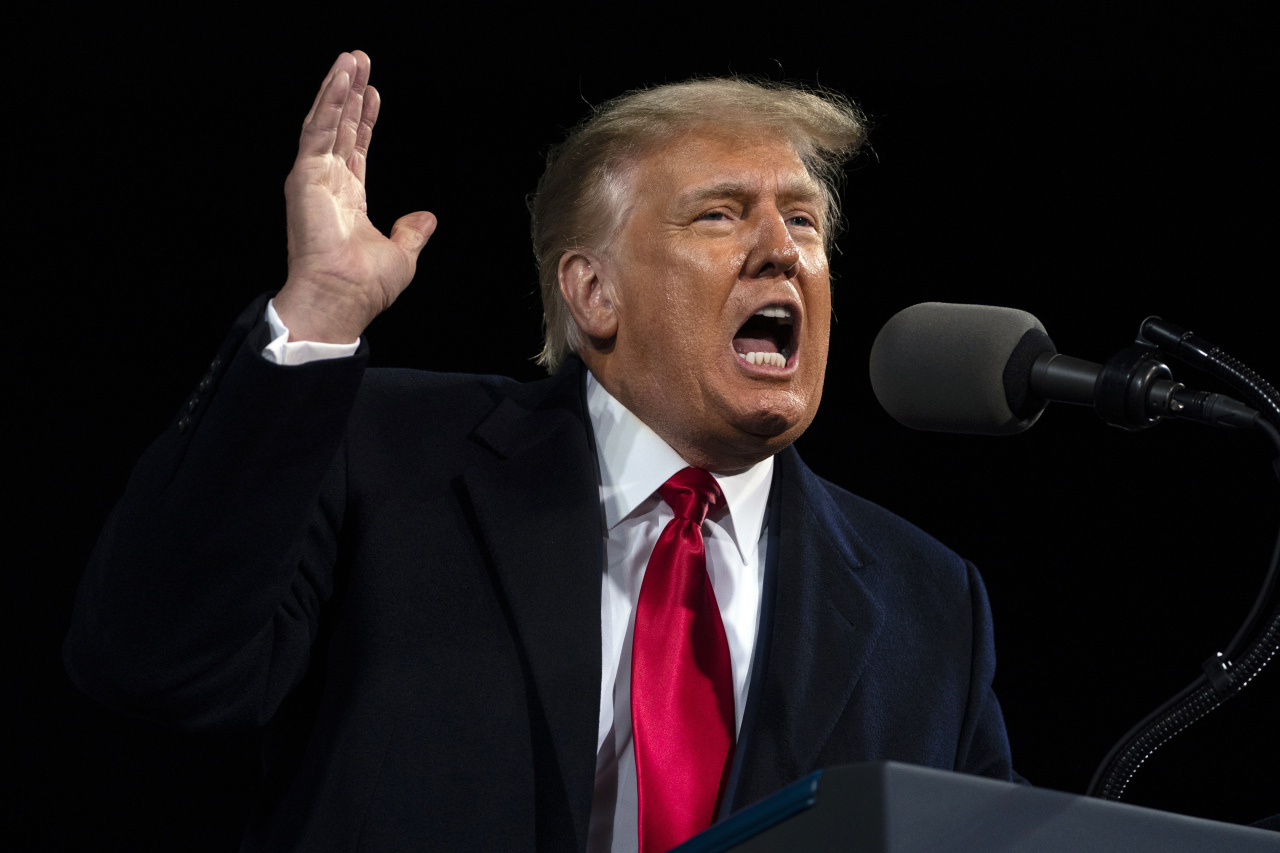Trump's push for KORUS FTA revision added uncertainty to alliance: CRS
By YonhapPublished : Jan. 27, 2021 - 09:04

WASHINGTON -- Former US President Donald Trump's push to revise the Korea-US FTA may have hurt the countries' alliance, a congressional report said Tuesday, noting the issue may need to be addressed by the Biden administration.
"The modification agreement allayed some of these concerns, but the Trump Administration's statements linking trade and security issues and persistent threats of additional US unilateral import restrictions, particularly on US auto imports, added a degree of uncertainty and tension in the overall bilateral relationship," the Congressional Research Service report said.
The Korea-US FTA originally went into effect in 2012, but Seoul agreed to modify the Korea-US FTA in 2018 after Trump threatened to withdraw from the bilateral free trade pact altogether. The renegotiated FTA went into effect at the start of 2019.
The report, however, noted Trump's push for a revised Korea-US FTA may have been driven by an ill-informed objective -- to strike a trade balance.
"The Trump administration made trade balances a key metric of the success of US FTAs, yet most economists argue other factors largely determine trade balance outcomes," said the report.
"Some analysts worry that trade tensions may influence South Korean views on the alliance and broader bilateral relations," it added.
Many have viewed the revised Korea-US FTA unfair as it calls on South Korea to double the number of US vehicles allowed to enter its market without having to meet its safety standards to 50,000 per year per manufacturer, while giving the US a 20-year extension until 2041 on its 25-percent import tariff imposed on South Korean pickup trucks.
The report noted because such changes primarily required only South Korean regulatory changes, the Trump administration did not require action or approval by Congress.
"Congress has constitutional authority to regulate foreign commerce, implements FTAs through legislation, and sets US trade negotiating objectives, but the Trump Administration negotiated modifications to KORUS without legislative approval by Congress. What is the appropriate role for Congress in considering modifications to FTAs that do not require changes to US law?" it said.
Noting many of Trump's trade restrictions were still in place, including increased import tariffs on South Korean washing machines and aluminium, the report said the issue may need to be addressed by the new US administration.
"How should President Biden address the Trump Administration import restrictions, which affect trade with South Korea?" the report said. (Yonhap)
"The modification agreement allayed some of these concerns, but the Trump Administration's statements linking trade and security issues and persistent threats of additional US unilateral import restrictions, particularly on US auto imports, added a degree of uncertainty and tension in the overall bilateral relationship," the Congressional Research Service report said.
The Korea-US FTA originally went into effect in 2012, but Seoul agreed to modify the Korea-US FTA in 2018 after Trump threatened to withdraw from the bilateral free trade pact altogether. The renegotiated FTA went into effect at the start of 2019.
The report, however, noted Trump's push for a revised Korea-US FTA may have been driven by an ill-informed objective -- to strike a trade balance.
"The Trump administration made trade balances a key metric of the success of US FTAs, yet most economists argue other factors largely determine trade balance outcomes," said the report.
"Some analysts worry that trade tensions may influence South Korean views on the alliance and broader bilateral relations," it added.
Many have viewed the revised Korea-US FTA unfair as it calls on South Korea to double the number of US vehicles allowed to enter its market without having to meet its safety standards to 50,000 per year per manufacturer, while giving the US a 20-year extension until 2041 on its 25-percent import tariff imposed on South Korean pickup trucks.
The report noted because such changes primarily required only South Korean regulatory changes, the Trump administration did not require action or approval by Congress.
"Congress has constitutional authority to regulate foreign commerce, implements FTAs through legislation, and sets US trade negotiating objectives, but the Trump Administration negotiated modifications to KORUS without legislative approval by Congress. What is the appropriate role for Congress in considering modifications to FTAs that do not require changes to US law?" it said.
Noting many of Trump's trade restrictions were still in place, including increased import tariffs on South Korean washing machines and aluminium, the report said the issue may need to be addressed by the new US administration.
"How should President Biden address the Trump Administration import restrictions, which affect trade with South Korea?" the report said. (Yonhap)




















![[Today’s K-pop] BTS pop-up event to come to Seoul](http://res.heraldm.com/phpwas/restmb_idxmake.php?idx=642&simg=/content/image/2024/04/17/20240417050734_0.jpg&u=)